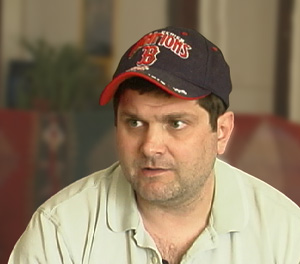The category of drugs Paxil belongs to (SSRIs) have received over 28,000 complaints to the FDA; yet doctors continue to prescribe; commercials continue to appear on TV and patients continue to feel duped into becoming addicted.
 Bob Lanou feels duped by his doctor and pharmaceutical companies into believing Paxil was the best treatment for his depression. Lanou, like thousands of other SSRI (Selective Serotonin Reuptake Inhibitors), users was told that the pill would help in overcoming the tragic loss of his daughter, job and girlfriend all within a single week. Lanou says, “At the time I was willing to try anything…I just wish I would have not been so naive and done a little more research.” Lanou did not suffer from chronic depression or major depression disorder (MDD), instead he had reached a point in life that became extremely difficult and almost unbearable. Seeking help in dealing with the trauma of his life situation he made an appointment with his General Practitioner who offered him enough free samples of Paxil to last him for months. Lanou found temporary relief, however, later Lanou would find his relief would come with a price. (More on Lanou later in our story).
Bob Lanou feels duped by his doctor and pharmaceutical companies into believing Paxil was the best treatment for his depression. Lanou, like thousands of other SSRI (Selective Serotonin Reuptake Inhibitors), users was told that the pill would help in overcoming the tragic loss of his daughter, job and girlfriend all within a single week. Lanou says, “At the time I was willing to try anything…I just wish I would have not been so naive and done a little more research.” Lanou did not suffer from chronic depression or major depression disorder (MDD), instead he had reached a point in life that became extremely difficult and almost unbearable. Seeking help in dealing with the trauma of his life situation he made an appointment with his General Practitioner who offered him enough free samples of Paxil to last him for months. Lanou found temporary relief, however, later Lanou would find his relief would come with a price. (More on Lanou later in our story).
SSRIs are used for treatment for nearly every possible psychological disorder. SSRIs and the various subclasses of the drugs, are used to treat everything from mild depression, premature ejaculation, anxiety and eating disorders. These pills are also prescribed more in Utah than in any other state, which is the reason why we thought to examine this issue more in-depth.
A History of Prozac and SSRIs
Prozac was the first SSRI approved by the FDA in the late eighties. It didn’t take long for SSRIs to become the forth most prescribed class of drugs on the market. Depression treatment before Prozac, was not in an effort to try to rebalance the chemistry in the brain. It could be argued that the most ingenius marketing effort by Prozac and SSRIs is how they convinced the general public that depression is caused by a chemical imbalance. Before SSRIs, patients suffering from depression visited doctors to treat symptoms of nervousness or anxiety whereby they were often prescribed the popular tranquilizer Valium.
Soon after FDA trials, Prozac was touted as the closest thing to a miracle cure for depression. Previous antidepressants had toxic side-effects, however Prozac was different- patients felt better with minimal side-effects. After clinical trials received FDA approval, Prozac and other SSRIs soon became a nice clean answer. However, like many other pills promoted through commercial advertising, when drug makers provide solutions to symptoms along with clever marketing, patients begin asking for drugs by name. The result is previously scarse problems arise in epidemic proportions. Brooke Shields put the common sentiment well in her classic statement: “Its comforting to discover my depression was directly tied to a biochemical shift.”
Celebrities helped to in promoting Prozac as the pill that produced happiness, which made Prozac something of a nineties pop-icon in its own right. Actors such as Winona Ryder, Johnny Depp as well as many comedians openly admit and talk about their depression and the help they have found from Prozac and others. “Prozac Nation” a film, starring Christina Ricci, also contributed to glamorizing the miracle cure Prozac and other SSRIs.
However, what most consumers of these pills were not informed of is the huge degree of uncertainty about the causes of depression and the long-term side effects of SSRIs. Today, SSRIs are indeed a cash cow for pharmaceutical companies. The Paxil pill alone has generated over $5 billion of revenue for its maker: Glaxo Smith Klein.
How SSRIs Work
SSRIs operate in the body at a cellular level. Unlike vitamins, these drugs are fat-soluble- psychotropic drugs- able to permeate through the walls of brain cells–as well as through most water filters, causing many SSRIs to be a contaminant in lakes, rivers and streams- which affects reproduction in frogs and fish- But his is another story for another day.
 SSRIs work by selectively inhibiting the reuptake process we feel when we are happy. Serotonin is the chemical released in the brain with happiness. Once this natural body chemical is released in the brain, there the reuptake process cleans up house and returns us to a normal state of being.
SSRIs work by selectively inhibiting the reuptake process we feel when we are happy. Serotonin is the chemical released in the brain with happiness. Once this natural body chemical is released in the brain, there the reuptake process cleans up house and returns us to a normal state of being.SSRIs inhibit the reuptake of the neurotransmitter serotonin, however, the common side-effect after long term usage is how the body adapts to the increase in serotonin levels. This excess of feel-good juice floods presynapic autoreceptors. The brain’s reaction is to lower the sensitivity of the autoreceptors. The result is “feeling like a robot,” at Bob Lanou puts it. This desensitization causes patients to become unable to feel extremely happy or sad. The body doesn’t react as strongly to serotonin and thus a strong feeling of happiness or euphoria becomes impossible. Besides this, there are many other side-effects such as:
- anhedonia
- nausea
- drowsiness or somnolence
- headache
- clenching of teeth
- extremely vivid and strange dreams
- dizziness
- changes in appetite
- weight loss/gain (measured by a change in bodyweight of 7 pounds)
- may result in a double risk of bone fractures and injuries
- changes in sexual behavior
- increased feelings of depression and anxiety (which may sometimes provoke panic attacks)
- tremors
- autonomic dysfunction including orthostatic hypotension, increased or reduced sweating
- akathisia
- liver or renal impairment
- suicidal ideation (thoughts of suicide)
- Photosensitivity (increased risk of sunburn)
(-from Wikipedia)
These side effects have put the drug companies into action to develop additional pills that counteract the problems. The following pills have been developed to mitigate the damage:
- bupropion (norepinephrine and dopamine reuptake inhibitor)
- buspirone (serotonin receptor agonist)
- methylphenidate (stimulant)
- mirtazapine (noradrenergic and specific serotonergic antidepressant (NaSSA))
- amphetamine (stimulant)
- amantadine (antiviral)
- pramipexole (dopamine agonist)
- ropinirole (dopamine agonist)
While the notion of taking drugs to alliviate the symptoms of other durgs could lead to potentially unlimited profits for durg makers, more psychatrists and psychologists are believing there must be a better way.
SSRIs are useful in some cases, and have helped thousands of people who suffer from chronic depression. However, Psychologist Dr. Lili Wagner says that patients suffering from depression should first seek counseling and lifestyle change. Wagner believes that SSRIs should be used only as a last resort. It is her hope that patients and doctors will both better understand that depression typically isn’t caused by a chemical imbalance in the brain, but moreover lifestyle choices. Wagner stresses that hardship and sadness are very common for periods of time, but with exercise and good nutrition the body will naturally feel better, producing better a better state of mind as well.
Besides the side effects while taking the drug, more problems arise when most patients attempt to stop taking the drug after years of use. This has lead to a whole other set of problems commonly described as “discontinuation syndrome”. Bob Lanou describes these symptoms in detail in our video interview. These symptoms include suicidality and aggression as well as akathisia (severe inner restlessness).
Its these symptoms, prominent especially in younger users- which were never present prior to using Paxil- that has resulted in several class action law suites filed against Glaxo Smith Klein. These law suits have resulted in more warning lables as well as several FDA cautionary updates to the drug. Rather than selectively reserving SSRIs for severe depression, little has changed in the public’s perception of SSRIs.
Paxil addict, Bob Lanou warns in closing that he just wants to inform potential users, “to think” before using mind altering psychotropic drugs. Mr. Lanou’s anger towards his previous Doctors and the pharmaceutical companies is palpable in the repeated times he has attempted to wean himself off the drug which always results in his inability to sleep due to akathisia and anxiety.



